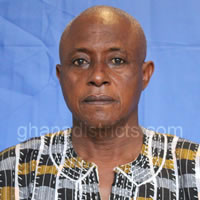Structure of the Abuakwa North Municipal Assembly
Abuakwa North was one of the newly created Districts in the country, established in the year 2017 with LI 2305. It was inaugurated on the 1st June, 2018. The Municipal Assembly is the highest political and administrative authority with power to exercise deliberative, legislative and executive functions in line with the Local Governance Act, 2016, Act 936. The Assembly has three (3) zonal Councils, 36 Unit Committees and one (1) constituency (Abuakwa North).
The Assembly is made up of Municipal Chief Executive; twenty-four (24) Assembly members of whom sixteen (16) or two thirds are elected by universal adult suffrage and eight (8) or one-thirds are appointed by the President in consultation with the chiefs and interest groups in the municipality. The Member of Parliament in the municipality is an ex-officio member. The Assembly is chaired by a Presiding Member elected from among their rank.
The Assembly performs its functions through the Executive Committee and a network of sub-committees. The executive functions are performed by the Executive Committee which is presided over by the Municipal Chief Executive (MCE) and consists of the chairmen of the five statutory sub-committees and three other Assembly Members elected from among the other assembly members. The Executive Committee exercises its executive and co-coordinating functions through the five statutory sub-committees that collate and deliberate on issues relevant to their functional areas.
Their work is complemented by the Public Relations and Complaints Committee (PRCC) headed by the Hon. Presiding Member with the responsibility to educate members of the public on the activities of the assembly, promote transparency, probity and accountability as well as investigating complaints made against the conduct of the chief executive, members and staff of the assembly. Sub-committees are as follow:
• Development Planning sub-committee;
• Social Services sub-committee
• Works sub-committee
• Finance and Administration sub-committee
• Justice and Security sub-committee
Office of the Municipal Assembly
The Office of the Municipal Assembly which is headed by the Municipal Co-ordinating Director (MCD) also exist to assist in the general administration of the Assembly. To facilitate the work of the Municipal Assembly, the Local Governance Act 2016, Act 936 and L.I 1961 make provision for the establishment of a number of Units with varied but complementary functions under the Office of the Municipal Assembly including the Municipal Planning Co-ordinating Unit, Human Resource Unit, Internal Audit Unit and Registry among others.
All the Units are headed by highly qualified and dedicated officers with equally competent assistants to support high standard service delivery in the municipality. The heads of the units report to the MCE through the MCD while the heads of departments of the assembly equally report through the same channel of communication as shown in Fig 1.19 The Municipal Planning Coordinating Unit (MPCU) has been assigned the unique function of providing advisory and secretariat services to the Municipal Planning Authority. The MPCU comprises of all the heads of departments of the assembly as well as other relevant institutions as provided for in the first schedule of the National Development Planning (System) Regulations, 2016 (L.I 2232). The Abuakwa North Municipal Assembly has therefore established a 23 member MPCU in consonance with the L.I 2232.
Departments of the Municipal Assembly
The Abuakwa North Municipal Assembly is by law responsible for the overall development of the municipality. It is charged with the task of revenue mobilization, formulation of programmes, budget preparation, and promotion of development activities within the municipality. The schedule two of the Act 936 provides for the establishment of thirteen departments of the assembly. However, only eight are fully established and functional with Roads, Physical Planning, Trade and Industry, Education, Youth and Sports, and transport departments yet to be established. The following are the established departments:
• Central Administration
• Finance
• Social Protection and Community Development
• Works
• Agriculture
• Disaster Prevention
Municipal Sub-Structures
Abuakwa North has been divided into 3 Zonal Councils and 16 Electoral Areas as shown in Table 1.24. These councils exist to ensure smooth administration, promote decentralization system of governance and bring decision making process closure to the people at the local level.
However, the functions of the sub-structures are affected by lack of permanent office accommodation and logistics. They also lack the full complement of permanent administrative staff to see to the day-to-day activities of the Area. Osiem and Kukurantumi Zonal Councils have good office accommodation while New Tafo’s office block requires major renovation works. The Assembly has plans to renovate the New Tafo office block, give a facelift to the Kukurantumi office and provide logistics to all three Zonal Councils to complete a restructuring process.
Social Accountability Activities
In order to improve citizens’ participation in project planning, implementation, monitoring and evaluation and also to engender community ownership of projects, the Assembly has made it a policy to engage in social accountability activities by organizing Town Hall Meetings on rotational basis in all the Zonal Council capitals.
The meetings will be aimed at interacting with the various segments of the society and also to create a platform for them to ask relevant questions on development issues and the utilization of Assembly resources to better their lives. It will also afford the Assembly the opportunity to educate the citizenry on their civic responsibilities and new government policies. Traditional Authorities, Interest Groups, CSOs, CBOs and the general public will be the target of such public engagements.
All heads of departments including the MCE will avail themselves to the public for questions and suggestions in a cordial and open atmosphere. The use of the Public Financial Management (PFM) Templates in the presentation of plans, budget and financial situations of the assembly will also gone a long way in making such meetings more interactive and well appreciated by the general public. Besides the Town Hall Meetings, the assembly has established a functional Client Service Center responsible for receiving complaints from the public which are promptly addressed and feedbacks provided within two weeks.
Involvement of Traditional Authorities and Citizen Participation
The Akyem Abuakwa paramountcy with its traditional capital at Kibi, which is incidentally within a different municipality, has always shown keen interest in the activities of the Assembly. The involvement of the traditional authorities is seen in the allocation of lands for assembly projects, support for communal labour and the periodic meetings that the management of the assembly holds with Nananom.
Within the Abuakwa North Municipality are major chiefs the Akyem Abuakwa paramountcy including the Daasebre Boamah Darko II, Adontenhene of Akyem Abuakwa Traditional Area and Chief of Kukurantumi and Osabarima Adusei Peasah IV, Awansahen of Akyem Abuakwa Traditional Area and Chief of Tafo. The traditional leadership is a major development partner of the Assembly as they compliment the justice and security work of the assembly through its traditional system of adjudicature which helps in maintaining peace and order in the communities. They also support the development activities of the Assembly and sometimes initiate their own for the good of their communities.
Citizens’ participation in Assembly’s activities has been encouraging although a lot more needs to be done. Patronage of assembly programmes is sometimes low in spite of the high level of publicity. Apathy is high among the youth especially while females are noted for their high attendance at Town Hall Meetings. In terms of revenue mobilization, the responsiveness of rate payers is encouraging as revenue collectors encounter little or no confrontation due of widespread public sensitization and consultation on fee fixing resolutions.
Date Created : 3/25/2019 3:18:26 AM






 facebook
facebook twitter
twitter Youtube
Youtube TOLL FREE 0800 430 430
TOLL FREE 0800 430 430 +233 593 831 280
+233 593 831 280 GPS: GE-231-4383
GPS: GE-231-4383 info@ghanadistricts.com
info@ghanadistricts.com Box GP1044, Accra, Ghana
Box GP1044, Accra, Ghana